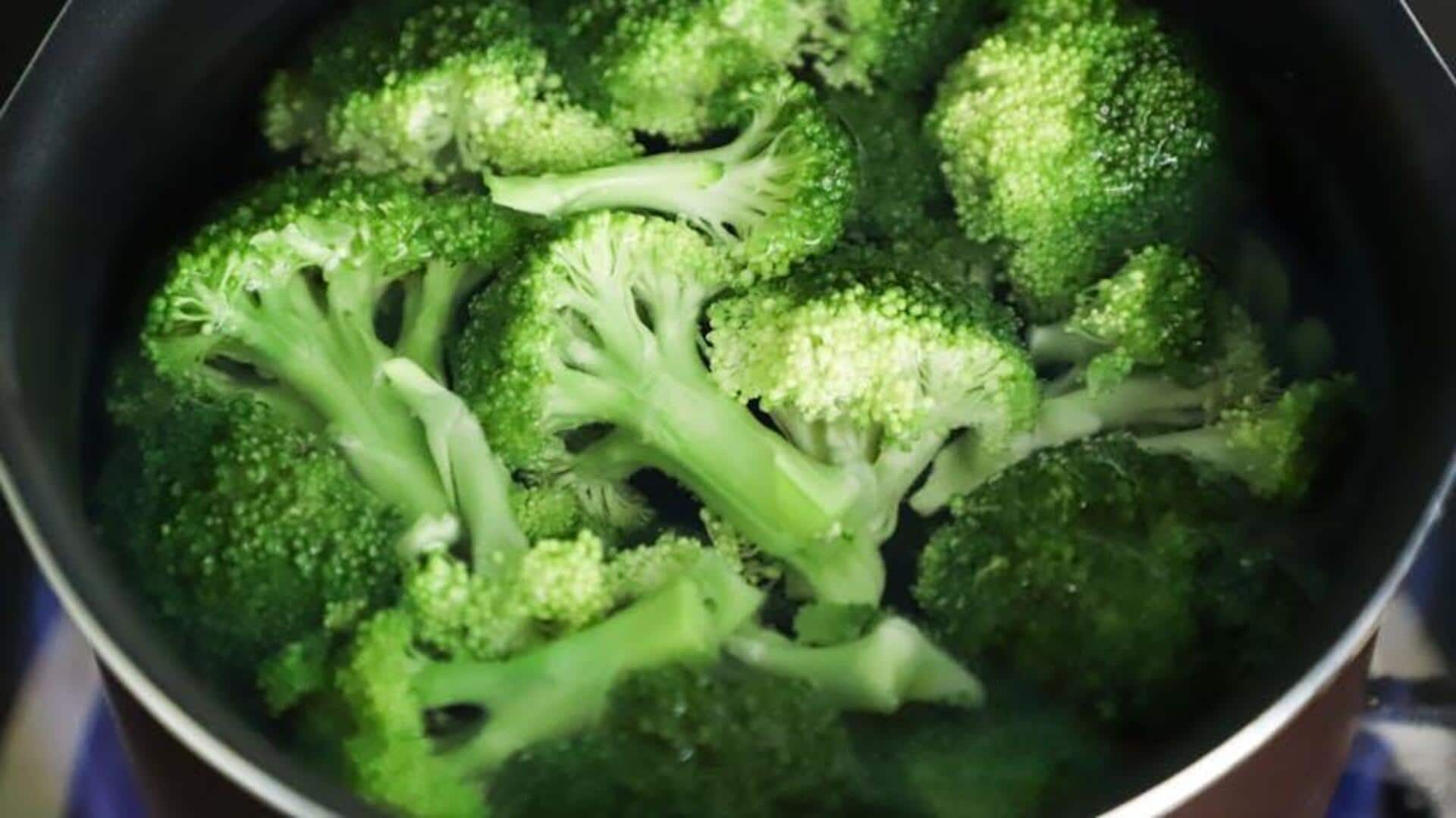
Broccoli v/s Brussels sprouts: Comparing their nutrition
What's the story
Often, broccoli and Brussels sprouts are stressed upon in cancer prevention talks because of their rich nutrients. They both belong to the cruciferous vegetable family, which is known for compounds that might help lower the chances of getting cancer. The story explores the nutritional aspects of these vegetables, and how they can play a role in preventing cancer. Let's find out!
Vitamin powerhouse
Rich source of vitamins
Broccoli is loaded with vitamins C and K, which are vital for overall health. Vitamin C serves as an antioxidant, protecting cells from damage. On the other hand, Brussels sprouts are rich in vitamin K, which is necessary for blood clotting and bone health. Both vegetables are rich in folate, which is vital for DNA synthesis and repair. Eating these veggies can help you get a range of essential vitamins.
Antioxidant boost
Antioxidant properties
Both broccoli and Brussels sprouts are packed with antioxidants that neutralize harmful free radicals in the body. Broccoli is especially rich in sulforaphane, a compound thought to have potent anti-cancer properties by promoting detoxification enzymes. Brussels sprouts also contain kaempferol, another antioxidant associated with reduced inflammation and improved heart health. These antioxidants play a major role in combating oxidative stress.
Fiber advantage
Fiber content benefits
Dietary fiber is essential for gut health and may help reduce the risk of cancer by ensuring regular bowel movements and effectively getting rid of waste from the body. While broccoli delivers roughly two grams of fiber per cup, Brussels sprouts can deliver approximately three grams per cup when cooked. Adding either vegetable to meals can boost fiber intake without adding too many calories.
Phytochemical impact
Crucial phytochemicals
Cruciferous vegetables such as broccoli and Brussels sprouts are rich sources of glucosinolates—phytochemicals that break down into biologically active compounds during digestion. These compounds have been studied for their potential role in inhibiting the growth of cancer cells by triggering apoptosis, or programmed cell death, in abnormal cells. Regular consumption may promote cellular health through these mechanisms.
Caloric efficiency
Low-calorie nutrient density
Both broccoli and Brussels sprouts are low-calorie yet nutrient-dense, perfect for those looking to manage weight and reduce cancer risk. Their consumption aids overall well-being by reducing obesity-related factors like inflammation. Including these veggies in balanced diets can maximize health outcomes. This encourages a lifestyle that benefits both physical and mental health without compromising life's quality.